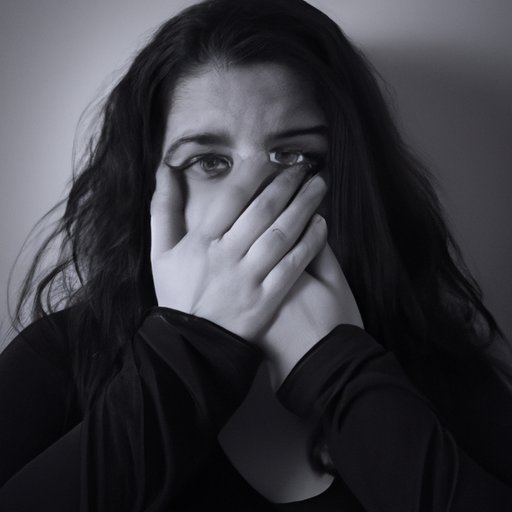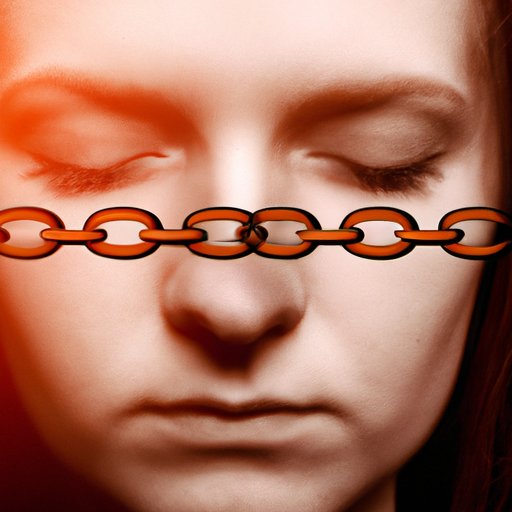
Can You Be Depressed and Not Know It?
Depression affects millions of people around the world, yet many individuals may be unknowingly struggling with this mental health disorder. Unrecognized or hidden depression can be a silent and painful struggle, impacting a person’s daily life and overall well-being. In this article, we’ll explore the topic of unrecognized depression, discuss symptoms and signs to look out for, and offer resources and support for those who may be experiencing this condition.

The Silent Struggle: How You Could Be Depressed and Not Even Realize It
Depression can be characterized by a variety of symptoms, such as feelings of sadness, low energy, and changes in appetite. However, many individuals may not perceive these symptoms as signs of depression or may not establish any connection between their experiences and depression. Psychologists refer to depression as an invisible illness since the symptoms are not always obvious or recognizable.
For many people experiencing unrecognized depression, the common experiences include feeling constantly overwhelmed, self-critical, and unhappy with daily pursuits. Often, they may feel as though they’re in a dark tunnel without the ability to see the light of day. These people might also experience inexplicable emotional outbursts, such as feeling overly tearful or anxious about small things, without knowing the underlying cause.
The Hidden Signs of Depression: Understanding the Symptoms You May Overlook
Aside from symptoms of sadness and low mood, many signs of depression can be complex and challenging to detect. Some common symptoms include decreased interest in once pleasurable activities and disruptions in sleep patterns. Additionally, struggling with concentration and memory or having physical symptoms such as headaches and digestive problems are other potential indications of depression. Because these symptoms can be present in several other mental and physical health disorders, depression often goes unnoticed.
Subtle changes in emotional expression may also be part of the depression experience that can be overlooked. People may adopt coping mechanisms like suppressing their feelings to avoid attracting notice or being judged, making it incredibly difficult to spot symptoms.
The Dark Cloud Over Your Head: Uncovering the Truth About Unrecognized Depression
When left unnoticed or untreated, depression can lead to more severe symptoms and worsening the condition. It may also lead to undesirable long-term outcomes like substance abuse issues, difficulty engaging and maintaining in work and social relationships, and self-harm. The World Health Organization reveals that depression is one of the leading causes of disability globally. It can impact anyone regardless of age, gender, or background.
Depression is often unrecognized even when it is apparent to the people surrounding the affected individual. It’s possible they may not know how to address or help the person experiencing unrecognized depression, leaving them to suffer in silence. Individuals may also be individuals who recognize that something is wrong but are hesitant to get help due to the associated stigma, embarrassment, or other reasons.
The Importance of Recognizing Hidden Depression: Why It Matters and How to Get Help
While unrecognized depression can be a painful and isolating experience, there are treatments and support available. It’s vital to recognize the signs of depression and seek help as needed. Seeking counseling or therapy, participating in group therapy sessions, or considering medication therapy options can be helpful and successful treatments for depression.
Often, due to the lack of understanding around mental illnesses, people may feel uneasy or embarrassed to reach out for assistance. However, it’s essential to recognize that this disease is no different from any other condition, and seeking help for mental health requires not only courage but self-love and self-compassion. Organizations like the National Alliance on Mental Illness and Mental Health America offer support, guidance, and resources for people impacted by depression.
Depression in Disguise: Understanding How Depression Can Affect You Without Your Knowledge
Depression can impact people differently, meaning that it may not always present in the same way across people. Factors such as personality type, age, gender, life circumstances, among others, contribute significantly to the manifestation of depression in individuals. Some people experiencing unrecognized depression may exhibit classic symptoms, such as ongoing sadness and lethargy while others may experience irritability and anger.
Moreover, the way in which depression is experienced can also influence how it is treated. Some may find relief from therapy sessions with a mental health professional or by adopting self-care habits like meditation, exercise, and healthy eating habits. By contrast, others might need medication therapy or a combination of different treatments.
Breaking The Stigma Around Unrecognized Depression: How to Address The Issue and Seek Support
Many people never receive the help and treatment they need to manage their depression due to underlying social stigma. We can break the stigma by having honest and open conversations, spreading awareness and addressing the prejudice related to depression and other mental health issues. One effective way to support people experiencing depression is to encourage them to seek professional help. Educating oneself about depression and developing positive coping mechanisms or practicing self-help strategies can effectively help recover from the condition.
Reaching out to a person and asking if they need help is the first thing to do if you are concerned about a loved one. It’s crucial to recognize that depression is something they may not even notice themselves, making it challenging to cope with and understand. Attending therapy sessions with your loved one or helping them find resources and support can be another great way to offer assistance and break the stigma associated with depression.
Conclusion
In conclusion, depression can severely impact a person’s life in all areas, affecting self-image, work, and relationships. Unrecognized depression can be invisible, but it deserves attention and understanding. By seeking resources, visiting mental health professionals, and educating ourselves and others about depression, we can make noticeable progress toward a brighter and healthier future.





